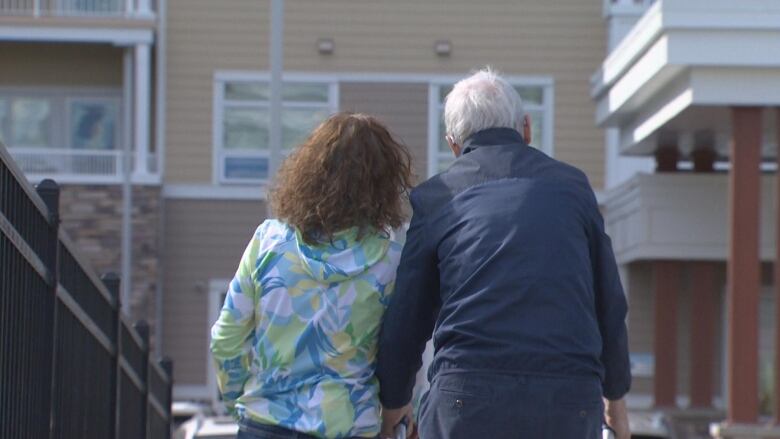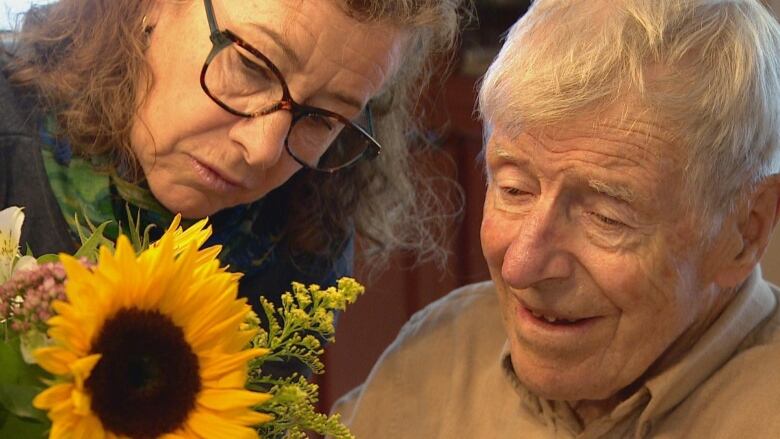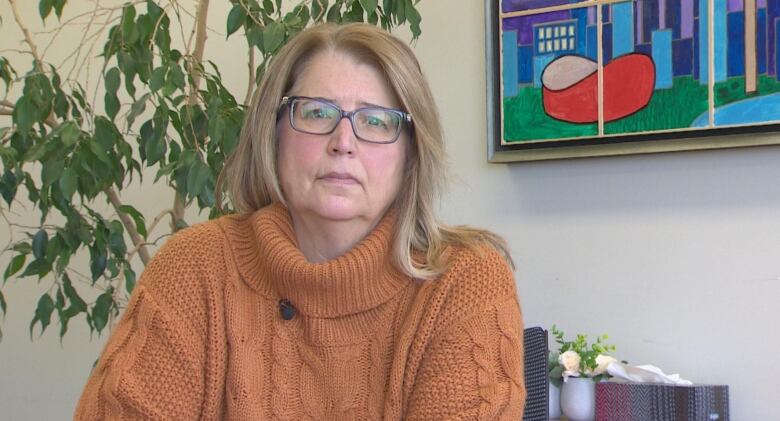'I'm proud of what I've done': Calgary woman reflects on caring for her dad
Disease on a lot of peoples minds, Alzheimer Calgary says
It's been two years since Aimee Trudel brought her dad, who is living with dementia, to Calgary. Since then she's been caring for him at her home in the southwest part of the city.
Now she's transitioning her father, Pat Trudel, from her home to a seniors residence.
"There are days where I've just been, like, 'I need to get him into a home yesterday.' And then there's days where I don't want him to go into a home," she said.
"I have a lot of people who love me a lot and they just say, 'Aimee, you need to get your life back.' And I've done a good job and I'm proud of what I've done and I don't really want him to go into a home."
Researchers who study caregiving say 28 per cent of Canadians provide care for a friend, family memberor neighbour.

While informal unpaid caregiving is increasingly being recognized as serving an important role in society and the economy, Statistics Canada saysit can come with challenges, including balancing competing demands, such as working at a paid job, raising children and maintaining healthy interpersonal relationships.
This was magnified among those dedicating the most hours per week to caregiving.
Trudel spent years deciding whether or not to bring Pat from his home in Quebec to Calgary. He was being cared for by two staffers, but because he lived in a small town, the available care resources were limited.
"When I went to visit him the last time, we decided that it was time for him to move here with us. But I need to preface that with the fact that my husband and I got up every morning for two years and chatted about 'what do we do, what do we do?'"

"And it was really, really, really difficult because I felt so helpless being out here."
Since that move, Aimee and Pat have been using a self-management program through Alberta Health Services. But eventually she was sleep-deprived and the costs to bring in additional staff to monitor Pat kept adding up.
Dementia describes a general group of brain disorders including Alzheimer's that are progressive, degenerative and, ultimately, terminal.
Trudel said the time she spent as a caregiver taught her about herselfand her relationship with her dad.
"The last two years have been magical for my dad and me, because we love each other so much, and we are so similar and we just have that relationship," she said.
A study from the Alzheimer Society of Canada predicts that the number of people in Canada living with dementia will triple within three decades.
The study used data from Statistics Canada to create representations of people living in Canada and looked at how many of those people would develop dementia over time in what is called a "microsimulation."
It's something that is on a lot of people's minds, said Cindy Bond, community educator with the Alzheimer Society of Calgary.

"We do have a lot more people connecting with us because they are curious. They want to know what the signs are. They want to know what next steps would be for them," Bond said.
She highlighted the need to get a diagnosis early even though it can be scary.
"Sometimes care partners can really find a great sense of comfort knowing that that was a conversation they had and they're really respecting those wishes when those decisions have to be made," she said.
Bond added that no two people impacted by dementia are the same, and the same goes for their caregivers.
The most important piece of advice she has for people in that role, she said, is to take care of yourself.
"It's time consuming. It can be drainingemotionally, physically. A lot of caregivers end up illbecause they're not looking after themselves."
Dr. Zahinoor Ismail, a professor of psychiatry and neurology at the University of Calgary, said family caregivers are becoming more and more common.
Ismailisthe lead investigator on a national study the Can-Protect which is looking at brain aging and the role caregivers play. He said one of the goals is to figure out how to "bottle" resilience in caregivers.
"I always pay attention to the caregiver and make sure I speak to them separately and ensure that they are coping and that someone is attending to them and they're attending to themselves as well," he said.
He said that's a big part of creating resiliency and reducing risk.

"They can't sleep with one eye open because they will get sick themselves. That's really important," he said.
But the biggest thing, he said, is for caregivers to understand that dementia doesn't change who the person was prior to developing the disease.
As Pat moves to his new home, Aimee is spending a few nights at the facility to help him get adjusted, and will be visiting often.
"I always remind him that I will always be there no matter what, and reassure him that he is looked after and will always be looked after."
With files from James Young, Courtney Dickson













_(720p).jpg)


 OFFICIAL HD MUSIC VIDEO.jpg)
.jpg)



























































































